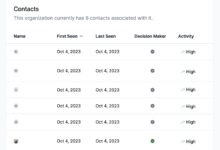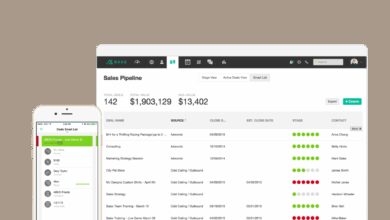Cloud based crm systems examples: Top 7 Cloud Based CRM Systems Examples: Ultimate Power Guide
Looking for the best cloud based CRM systems examples? You’re in the right place. We’ve done the research, compared features, pricing, and real-world performance to bring you a definitive list of top platforms transforming how businesses manage customer relationships.
What Are Cloud Based CRM Systems and Why They Matter

Cloud based CRM systems examples have revolutionized how companies interact with customers. Unlike traditional on-premise software, these platforms operate over the internet, offering real-time access, scalability, and seamless integration. They are hosted on remote servers managed by vendors, eliminating the need for in-house IT infrastructure.
Definition and Core Functionality
CRM stands for Customer Relationship Management. Cloud based CRM systems examples are web-hosted platforms that help businesses manage interactions with current and potential customers. These systems centralize customer data—such as contact information, purchase history, communication logs, and support tickets—into a single, accessible location.
- Automate sales processes and lead tracking
- Manage marketing campaigns across channels
- Provide customer service and support tools
- Generate analytics and performance reports
By leveraging cloud technology, these systems ensure data is available anytime, anywhere, from any device with internet access. This flexibility is crucial for remote teams, mobile sales reps, and global organizations.
Evolution from On-Premise to Cloud CRM
Historically, CRM systems were installed locally on company servers. This required significant upfront investment in hardware, software licenses, and IT personnel. Updates were slow, and scalability was limited. As internet speeds improved and cybersecurity strengthened, the shift to cloud-based solutions accelerated.
According to Gartner, over 85% of CRM deployments in 2023 were cloud-based, a dramatic increase from just 30% a decade ago. The transition has been driven by the need for agility, cost efficiency, and faster deployment. Cloud CRM allows businesses to go live in days rather than months, with minimal technical setup.
“The cloud has democratized CRM access. Small businesses can now use the same powerful tools as Fortune 500 companies.” — CRM Industry Analyst, Forrester Research
Top 7 Cloud Based CRM Systems Examples in 2024
When evaluating cloud based CRM systems examples, it’s essential to consider functionality, ease of use, integration capabilities, pricing, and customer support. Below is a comprehensive breakdown of the seven most impactful platforms dominating the market today.
1. Salesforce Sales Cloud
Salesforce is often considered the gold standard in cloud based CRM systems examples. Launched in 1999, it pioneered the concept of cloud CRM and continues to lead the market with a 19.8% global share (Statista, 2024).
- Robust sales automation and pipeline management
- AI-powered insights via Einstein Analytics
- Extensive app ecosystem (AppExchange)
- Customizable dashboards and reporting
Salesforce excels in scalability, making it ideal for enterprises. However, its complexity can be overwhelming for small businesses. Implementation often requires training or consultants. Pricing starts at $25/user/month for the Essentials plan, going up to $300/user/month for Unlimited.
Learn more about Salesforce features at Salesforce Official Site.
2. HubSpot CRM
HubSpot CRM is one of the most user-friendly cloud based CRM systems examples, especially popular among small to mid-sized businesses. What sets it apart is its completely free core CRM platform.
- Free forever plan with contact management, email tracking, and deal pipelines
- Seamless integration with marketing, sales, and service hubs
- Intuitive interface with drag-and-drop customization
- Powerful automation workflows and email scheduling
HubSpot’s strength lies in its all-in-one inbound marketing approach. It’s particularly effective for companies focused on content marketing, lead nurturing, and customer engagement. Paid tiers start at $45/month and scale based on features like automation, reporting, and team size.
Explore HubSpot’s capabilities at HubSpot CRM Overview.
3. Zoho CRM
Zoho CRM is a cost-effective and highly customizable option among cloud based CRM systems examples. It’s part of the larger Zoho suite, which includes email, finance, and project management tools.
- AI assistant (Zia) for predictive lead scoring and activity suggestions
- Multi-channel communication (email, phone, social, chat)
- Workflow automation and approval processes
- Strong mobile app with offline access
Zoho CRM is ideal for businesses looking for deep customization without high costs. Its pricing is among the most competitive, starting at $14/user/month for the Standard plan. Enterprise plans offer advanced analytics and admin controls.
Visit Zoho CRM Official Page for detailed feature breakdowns.
4. Microsoft Dynamics 365 Sales
Microsoft Dynamics 365 Sales integrates seamlessly with the Microsoft ecosystem, making it a top choice for organizations already using Office 365, Teams, and Azure.
- Deep integration with Outlook, Excel, and Power BI
- AI-driven sales insights and relationship analytics
- Customizable sales processes with Power Automate
- Strong security and compliance features
This platform is particularly powerful for enterprise sales teams that require robust data governance and regulatory compliance. While it has a steeper learning curve, its integration with familiar Microsoft tools reduces training time. Pricing starts at $65/user/month.
Learn more at Microsoft Dynamics 365 Sales.
5. Pipedrive
Pipedrive is designed specifically for sales-focused teams. Among cloud based CRM systems examples, it stands out for its visual sales pipeline and ease of use.
- Drag-and-drop pipeline management
- Activity-based selling approach
- Automated workflows and email integration
- Mobile-first design with real-time updates
Pipedrive is ideal for small sales teams or startups that want a simple, intuitive CRM without unnecessary complexity. It emphasizes action-oriented workflows, helping reps stay on track. Pricing starts at $14.90/user/month, with a 14-day free trial.
Check out Pipedrive’s official site for demos and pricing.
6. Freshsales (by Freshworks)
Freshsales is a modern, AI-powered CRM that combines simplicity with smart automation. It’s one of the fastest-growing cloud based CRM systems examples due to its intuitive design and powerful features.
- Integrated phone, email, and chat within the CRM
- AI-based lead scoring and deal insights
- Visual deal timeline and activity tracking
- Customizable workflows and automations
Freshsales is particularly effective for mid-market companies looking to scale their sales operations. Its AI assistant, Freddy, helps prioritize leads and predict deal closures. Pricing starts at $15/user/month, with a free plan available for up to 3 users.
Visit Freshsales CRM for more details.
7. Oracle CX Sales
Oracle CX Sales is an enterprise-grade solution among cloud based CRM systems examples, designed for large organizations with complex sales cycles and global operations.
- End-to-end sales cycle management
- Advanced forecasting and territory management
- Integration with ERP and supply chain systems
- AI-powered recommendations and next-best-action suggestions
Oracle’s strength lies in its deep integration with back-office systems, making it ideal for manufacturing, distribution, and B2B enterprises. However, it requires significant implementation resources and is less suited for small businesses. Pricing is typically custom-quoted based on deployment size.
Explore Oracle’s offering at Oracle CX Sales.
Key Features to Look for in Cloud Based CRM Systems Examples
Not all cloud based CRM systems examples are created equal. To make an informed decision, you must evaluate platforms based on critical features that align with your business goals.
Sales Automation and Pipeline Management
One of the primary reasons businesses adopt CRM is to streamline sales processes. Look for tools that offer:
- Automated lead assignment and follow-up
- Customizable sales stages and pipelines
- Task reminders and activity logging
- Deal forecasting and win probability analysis
Platforms like Salesforce and Pipedrive excel in visual pipeline tracking, while HubSpot offers seamless email automation within the sales flow.
Marketing Integration and Campaign Management
A powerful CRM should not operate in isolation. Integration with marketing tools allows for cohesive customer journeys. Key capabilities include:
- Email campaign creation and tracking
- Landing page and form builders
- Lead scoring and segmentation
- Multi-channel campaign management (social, SMS, ads)
HubSpot and Zoho CRM lead in this area, offering native marketing hubs that sync perfectly with CRM data.
Customer Service and Support Tools
Modern CRM systems go beyond sales. They support the entire customer lifecycle, including post-sale service. Essential features include:
- Help desk ticketing systems
- Knowledge base integration
- Live chat and chatbot support
- Customer satisfaction (CSAT) surveys
Salesforce Service Cloud and Freshsales offer robust service modules, enabling teams to resolve issues faster and improve retention.
Benefits of Using Cloud Based CRM Systems Examples
Adopting a cloud based CRM system is more than a technological upgrade—it’s a strategic move that impacts every aspect of customer engagement.
Cost Efficiency and Scalability
Traditional CRM systems require large capital expenditures. Cloud solutions operate on a subscription model, turning costs into predictable operational expenses. You pay only for what you use and can scale up or down based on team size or business needs.
For example, a startup can begin with HubSpot’s free plan and upgrade as it grows. This flexibility is a game-changer for small and medium businesses.
Remote Access and Mobility
In today’s hybrid work environment, access to customer data from anywhere is non-negotiable. Cloud based CRM systems examples offer mobile apps and responsive web interfaces, allowing sales reps to update records, send emails, and close deals from the field.
Pipedrive and Zoho CRM have particularly strong mobile experiences, with offline mode and real-time sync.
Automatic Updates and Security
Vendors handle software updates, security patches, and backups. This means businesses always have access to the latest features without downtime or IT overhead.
Additionally, cloud providers invest heavily in security. Most platforms offer encryption, multi-factor authentication, and compliance with standards like GDPR, HIPAA, and SOC 2.
“With cloud CRM, we reduced our IT maintenance costs by 60% and improved data accuracy across departments.” — IT Director, Mid-Sized Manufacturing Firm
How to Choose the Right Cloud Based CRM System for Your Business
Selecting the right cloud based CRM systems examples depends on your business size, industry, goals, and budget. Here’s a step-by-step guide to help you decide.
Assess Your Business Needs
Start by identifying your pain points. Are you struggling with lead tracking? Do sales and marketing teams work in silos? Is customer service response time slow? Define your primary objectives—whether it’s increasing conversion rates, improving customer retention, or automating follow-ups.
Create a list of must-have features and nice-to-have ones. This will help narrow down options.
Evaluate Integration Capabilities
Your CRM should integrate seamlessly with existing tools—email, calendar, accounting software, e-commerce platforms, and marketing automation tools.
- HubSpot integrates with over 1,000 apps via HubSpot Marketplace
- Salesforce offers over 3,000 apps on AppExchange
- Zoho CRM works natively with other Zoho products
Check API availability and pre-built connectors before committing.
Consider User Adoption and Training
The best CRM is useless if your team won’t use it. Prioritize platforms with intuitive interfaces and strong onboarding support.
HubSpot and Pipedrive are known for their user-friendly designs, while Salesforce may require formal training. Look for vendors that offer free trials, tutorials, and customer support.
Implementation Best Practices for Cloud Based CRM Systems Examples
Even the best cloud based CRM systems examples can fail without proper implementation. Follow these best practices to ensure success.
Data Migration and Cleanup
Before importing data, clean your existing databases. Remove duplicates, standardize formats (e.g., phone numbers, email addresses), and verify contact information.
Most CRMs offer import tools for CSV or Excel files. Salesforce and Zoho provide data migration services for enterprise clients.
User Training and Change Management
Roll out the CRM in phases. Start with a pilot group, gather feedback, and refine processes before company-wide deployment.
Provide hands-on training sessions, video tutorials, and quick-reference guides. Assign internal champions to support adoption.
Customization and Workflow Automation
Customize the CRM to match your sales process. Create custom fields, stages, and dashboards. Automate repetitive tasks like email follow-ups, task assignments, and notifications.
For example, set up a workflow in HubSpot that tags leads from a specific campaign and assigns them to a sales rep automatically.
Future Trends in Cloud Based CRM Systems Examples
The CRM landscape is evolving rapidly. Staying ahead of trends ensures your business remains competitive.
AI and Predictive Analytics
Artificial intelligence is no longer a luxury—it’s a necessity. AI-powered features like lead scoring, sentiment analysis, and next-best-action recommendations are becoming standard.
Salesforce Einstein, Zia by Zoho, and Freddy by Freshworks are leading this charge, helping sales teams prioritize efforts and close deals faster.
Hyper-Personalization and Customer Journey Mapping
Customers expect personalized experiences. Modern CRMs are moving beyond segmentation to deliver real-time, context-aware interactions.
Platforms are incorporating journey mapping tools that visualize the customer lifecycle, enabling businesses to anticipate needs and deliver relevant content at every touchpoint.
Integration with IoT and Voice Technology
As smart devices proliferate, CRMs are beginning to integrate with IoT data. For example, a connected product can trigger a service ticket automatically when it detects a fault.
Voice assistants like Alexa and Google Assistant are also being used to log calls or update CRM records hands-free, improving efficiency for field service teams.
What are cloud based CRM systems examples?
Cloud based CRM systems examples include platforms like Salesforce, HubSpot CRM, Zoho CRM, Microsoft Dynamics 365, Pipedrive, Freshsales, and Oracle CX Sales. These are web-based tools that help businesses manage customer interactions, sales pipelines, marketing campaigns, and support services in a centralized, accessible environment.
What is the best cloud based CRM for small businesses?
HubSpot CRM and Zoho CRM are widely regarded as the best cloud based CRM systems examples for small businesses due to their affordability, ease of use, and robust free plans. HubSpot offers a completely free CRM with powerful automation, while Zoho provides deep customization at a low cost.
How much do cloud based CRM systems cost?
Prices vary widely. Some platforms like HubSpot CRM offer free plans. Others start around $14–$25 per user per month (e.g., Zoho, Pipedrive), while enterprise solutions like Salesforce or Oracle can cost $100+ per user per month depending on features and scale.
Can cloud CRM systems integrate with other business tools?
Yes, most cloud based CRM systems examples offer extensive integration capabilities. They can connect with email, calendar, marketing automation, e-commerce, accounting, and customer service tools via APIs or pre-built connectors. Platforms like Salesforce and HubSpot have large app marketplaces for seamless integration.
Are cloud CRM systems secure?
Yes, reputable cloud based CRM systems examples implement strong security measures including data encryption, multi-factor authentication, regular backups, and compliance with international standards like GDPR and SOC 2. Vendors invest heavily in cybersecurity to protect customer data.
Choosing the right cloud based CRM system is a strategic decision that can transform how your business engages with customers. From Salesforce’s enterprise power to HubSpot’s user-friendly design, the examples covered here represent the best in the market. Evaluate your needs, take advantage of free trials, and prioritize platforms that offer scalability, integration, and strong support. With the right CRM, you’ll boost productivity, improve customer satisfaction, and drive sustainable growth.
Further Reading:








